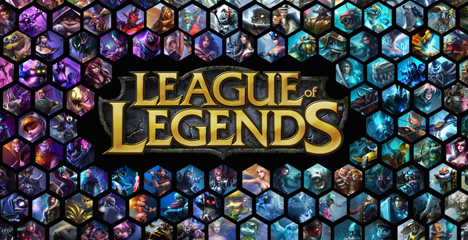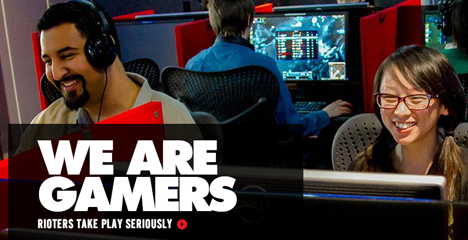The keynote at Jarrod Overson started at 10:58h with a bit about his background
- he couldn’t work on something different as a gamer.
With 15 years “remunerated” (as he says), he reached the point where his company has a huge product today, like League of Legends
, where online players get destroyed while the platform becomes ENORME!!
Now think about how the company grows to follow the success and scale the needs of a new market that opens up.
For Jarrod, one of the most complicated parts is scaling people, hiring the right people who have the same principles and complementary desires
- it’s complicated… very complicated.
And after growing, you lose everything good that you achieved when your company was small.
Companies, teams, people are inserted into different ecosystems that involve policies for access or freedom of expression.
How can this work?
The internet is a giant network composed of all this variety of views and effects and causes, and the community makes it with all their effort a scalable place.
It’s asynchronous by necessity
- everything must be active, but how can you bring this to companies?
The internet is blind to class, race, and species, and finding value in this diversity is more than necessary to scale your company and product, because these experiences and the aggregated culture elevate debates and creations to a higher level. RIOT Games has done a bit of each of these things
- the change is for better because it doesn’t cling to it.
Building a community, contribution, learning, cultural openness and equality.
The next big change to handle all the load on top of it will be supplied by all new APIs, frameworks, tags, and ideas and more ideas that are emerging, evolving, and surviving.
Companies, systems, and people should observe and learn from this model!
Some inventions are very cool and above all allow the ecosystem itself to transform and generate new inventions.
See the example of ASM.js , a specification that allows transforming the web into a target for compilations.
Imagine the chaos when C programmers go to the web.
Compiled C code presented in the browser on demand, debugging C in the browser.
These types of creation and transformation don’t bring scalability to a new level?
Each person with any level of knowledge can decide what the next decade will be!
The WEB in all its aspects is the biggest example of how we can achieve scalability.
We are the WEB and it belongs to future generations!
Contribute and get involved
- that’s the final message from Jarrod .
The translation may not be perfect, as the text contains technical terms and cultural references that might be difficult to translate accurately.